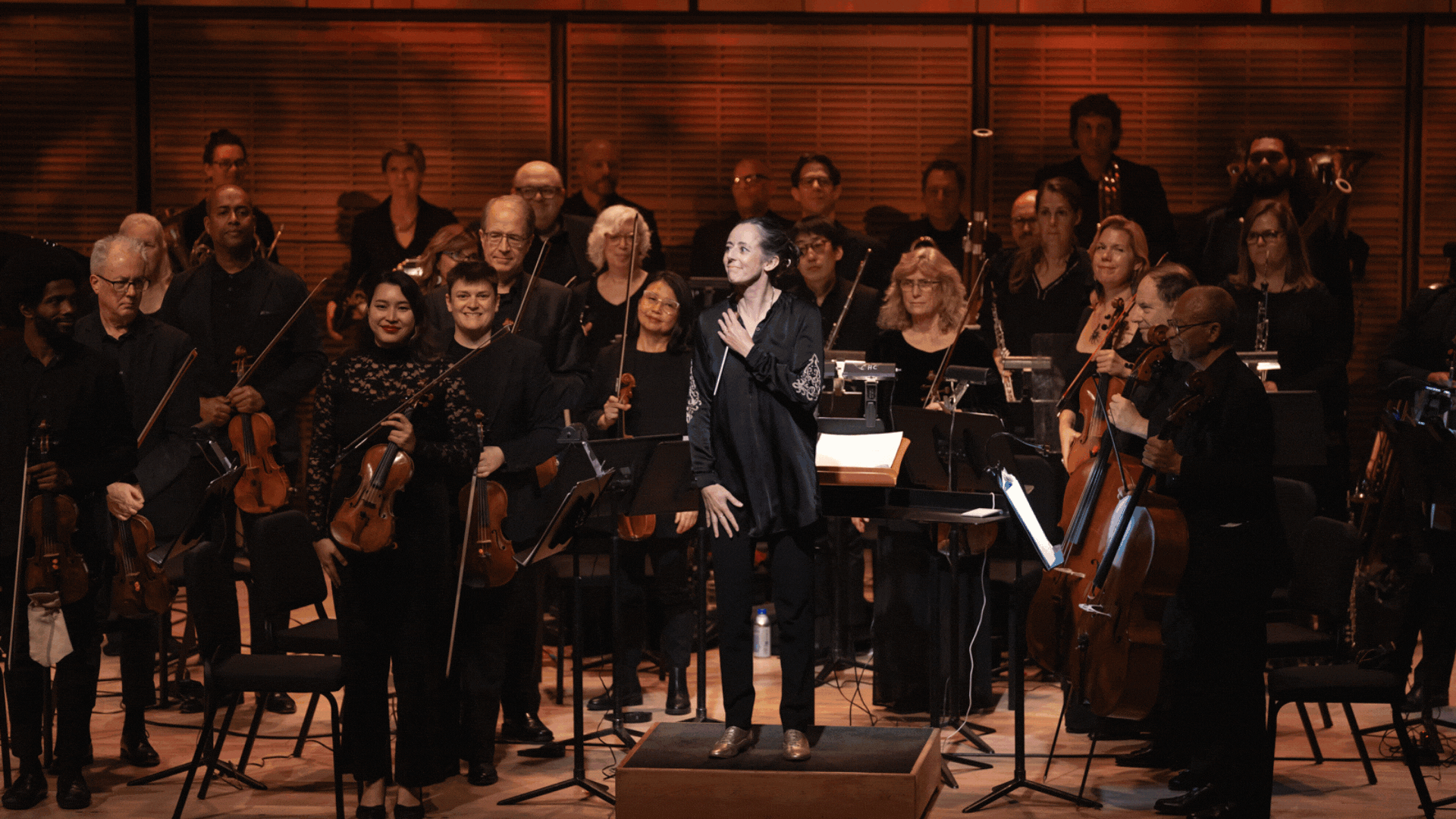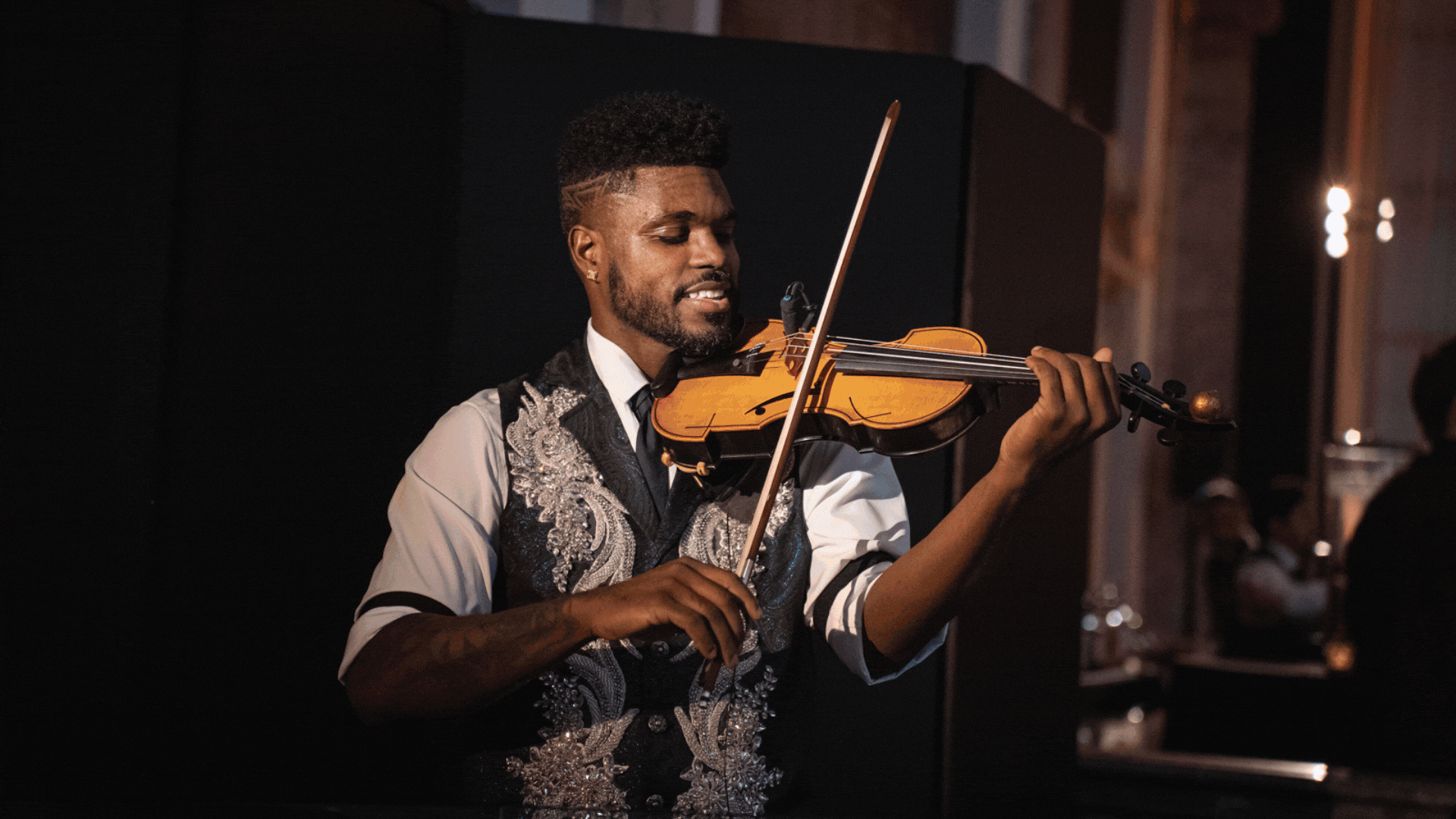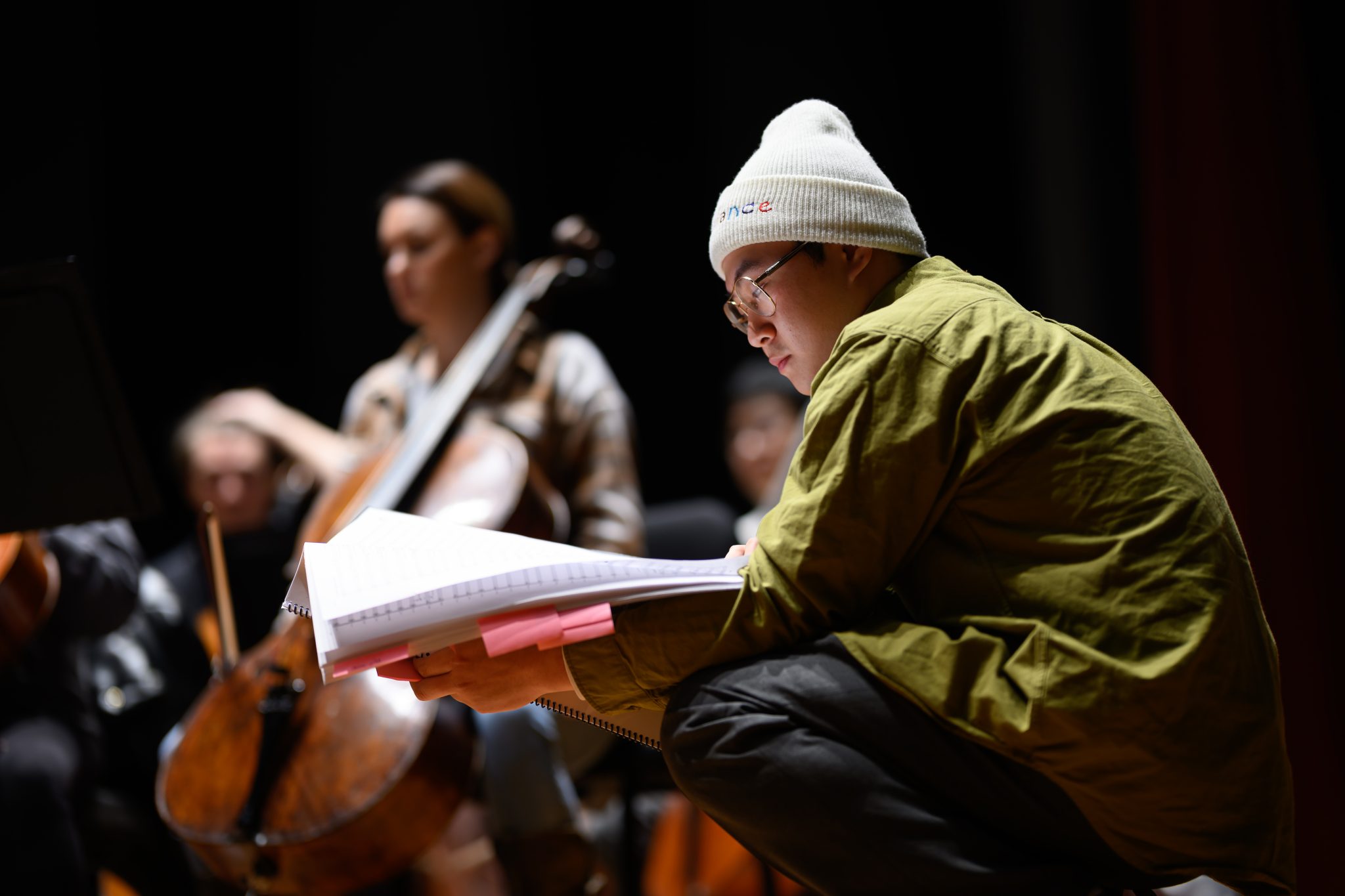Composer Spotlight: Anna Clyne - A Circle of Artistry & Mentorship
London-born Anna Clyne is a GRAMMY-nominated composer of acoustic and electro-acoustic music. Described as a “composer of uncommon gifts and unusual methods” in a New York Times profile and as “fearless” by NPR, Clyne is one of the most acclaimed and in-demand composers of her generation, often embarking on collaborations with innovative choreographers, visual artists, filmmakers, and musicians
Led by conductor Marin Alsop, American Composers Orchestra performs Clyne’s Restless Oceans at Carnegie Hall’s Zankel Hall on March 25, 2022. Part of Sanctuary, co-presented by ACO and Carnegie Hall, the concert explores the places, company, and states of mind in which composers seek inviolable refuge. We recently spoke with Anna about her long-standing relationship with Marin Alsop, and her early start in orchestral music with ACO’s EarShot music readings in 2006.
Lyndsay Werking (LW): Tell me about Restless Oceans
Anna Clyne (AC): I composed Restless Oceans for Marin Alsop and the Taki Concordia Orchestra for performance at the World Economic Forum Annual Meeting in Davos. The piece received its world premiere at the opening ceremony in 2019 where Marin was presented with the Forum’s prestigious Crystal Award in recognition of her championship of diversity in music. It was an all-women orchestra featuring young musicians and professional musicians combined.
I started with a literary source, Audre Lorde’s “A Woman Speaks,” which is something I often do. Audre Lorde is a real inspiration because she used her voice to confront and address injustices of sexism racism, classism, and homophobia. The title, Restless Oceans, comes from the end of the poem:
I do not mix
love with pity
nor hate with scorn
and if you would know me
look into the entrails of Uranus
where the restless oceans pound.
Marin had suggested using the musician’s bodies to create additional sounds for the piece, so I explored having them stomping and vocalizing. I’ve notated, “Huh,” which is a very guttural sound. I also have them singing in unison. My intention isn’t to create a professional choral sound but to create the sound of people coming together in song and to write a defiant piece that embraces the power of women. The work has contrasting material: a high energy opening juxtaposed with more lyrical passages.
LW: Tell me about your relationship with conductor Marin Alsop.
AC: I’m grateful that Marin has been such an advocate for my music. I first had the honor of working with her in 2010 at the Cabrillo Festival of Contemporary Music, which is dedicated to the music of living composers. She programmed my piece <<rewind<<, which was read by the ACO as part of the 2006 Underwood New Music Readings.
Then in 2015, I was Composer-in-Residence at the Baltimore Symphony where Marin was Music Director. This included two commissions: Abstractions, a five movement work inspired by five contrasting contemporary artworks, and Color Field, which draws its inspiration from Rothko’s Orange Yellow Red. Thanks to Marin, I also wrote a piece called Masquerade that she premiered at the 2013 Last Night of the Proms, which marked the first time that a woman took the podium for this celebratory and historic event.
https://youtu.be/o9Lxk7LRiBIMarin Alsop’s speech at the Last Night of the Proms 2013. The Proms or BBC Proms is an eight-week summer season of daily orchestral classical music concerts and other events held annually.
LW: How else has Marin Alsop served as a mentor?
AC: Marin sets a great example through her efforts to nurture creativity and create new opportunities for young artists from all backgrounds. She started the OrchKids program at the Baltimore Symphony Orchestra, which brought music to thousands of kids. Observing her approach, I’ve decided that part of my life as an artist is to also share the knowledge and skills that I have gathered along the way.
I’m currently finishing up a three-year residency with the Scottish Chamber Orchestra, which includes working on New Stories, a program through which I mentor three women composers: Georgina MacDonell Finlayson, Electra Perivolaris and Gillian Walker. In their first year, they wrote new works for chamber ensemble, which were recorded and recently released as digital films. This year, they each wrote a new work for chamber orchestra which will be premiered by the SCO this Autumn.
It is always exciting to work with Marin because she knows my work inside and out. She truly understands what I imagined during the solitary practice of composing.
LW: How do you think about the audience experience and your work now that we’ve been through the Covid-19 pandemic for over two years?
AC: I feel like our senses are heightened as we resurface from the pandemic and return to the concert hall. Sharing a live musical experience with other people is thrilling. Perhaps we appreciate it more now, after only experiencing digital performances for a such an extended period of time. We’re grateful to have had the online content during the pandemic, but we couldn’t share it in the same way – together as a collective audience. This will be my first time back in Zankel Hall since the pandemic, and I’m very much looking forward to this experience.
The first work I wrote for ACO, Tender Hooks, is a double laptop concerto written for two laptops (live drawing by Joshue Ott and live electronics by Jeremy Flower) and orchestra. It was commissioned and premiered in 2008 and performed at Zankel Hall as part of the Playing it UNSafe program. In 2006, I was part of the Underwood Readings (now called ACO’s EarShot in NYC) with <<rewind<<. That was my first opportunity to work with a professional orchestra. With all these layers, it’s really meaningful for me to have a performance at Zankel Hall with American Composers Orchestra, conducted by Marin.
LW: Can you tell me more about your ACO experiences?
AC: The timing was poignant. As a composer, your path is most daunting when you’ve just graduated. I had just completed my Master’s degree at Manhattan School of Music and the following Summer I attended Bang on a Can’s Summer Festival at the Massachusetts Museum of Contemporary Art, which gave me a strong sense of community upon my return to New York. Then the ACO expanded this creative circle by inviting me to the readings where I worked with professional musicians and met more composer colleagues and mentors.
In 2002 I participated in the New York Youth Symphony’s Making Score program, which was founded by ACO’s Artistic Director Derek Bermel. I later had the opportunity to direct this same program from 2008-2010. I also worked as Derek’s assistant a few years prior, which gave me valuable insights into life as a professional composer.
I loved the ACO Readings because the focus was not the concert, but receiving constructive feedback from the musicians, composers, librarian and mentors.
LW: What else are you working on?
AC: I am currently working on several concerti, including works for saxophonist Jess Gillam, clarinetist Martin Fröst, violinist Pekka Kuusisto, the Swingle Singers and a Concerto for Orchestra. The seeds that the ACO planted are still relevant to my work – exploring electroacoustic techniques through orchestration and the dialog between soloists and orchestra.
LW: Do you follow any rituals?
AC: I practice non-composing rituals that help me find a peaceful and focused place to compose. I just completed a five-week course on Japanese calligraphy offered by the Japan Arts Society. The work is based in mindfulness and gesture, and is a wonderfully meditative and creative process. I’m also taking online Irish fiddle classes with the Irish Arts Center.
Corporate gifts to match employee contributions are made by Goldman Sachs, Deutsche Bank, Triton Container International Incorporated of North America, and Neiman Marcus.
Public funds are provided by the New York City Department of Cultural Affairs in partnership with the City Council, and the New York State Council on the Arts with the support of Governor Kathy Hochul and the New York State Legislature, Office of Brooklyn Borough President Reynoso, and the National Endowment for the Arts.






